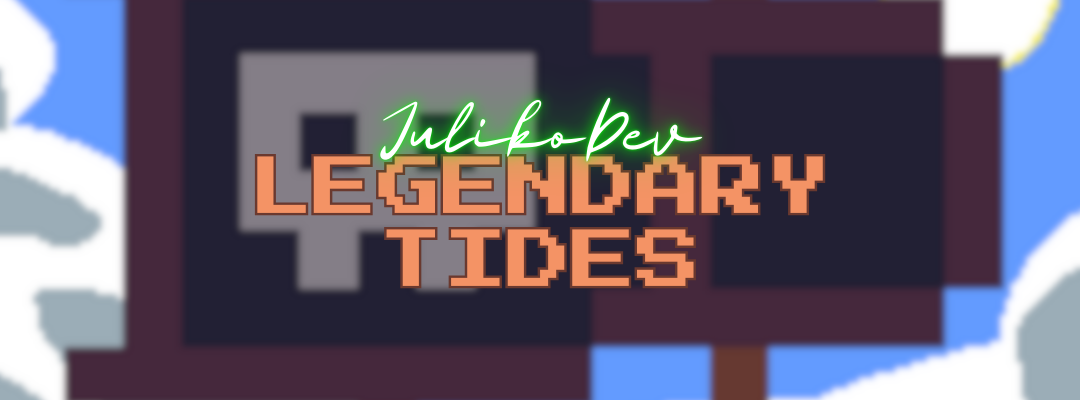The Journey of Developing My Idle Strategy Game: Challenges, Solutions, and Lessons Learned




Developing a video game is an exciting yet challenging adventure. Over the course of creating this project—a dynamic strategy game inspired in various idle games. I learned a great deal about game design, problem-solving, and utilizing Unity to its fullest. Here's a detailed look into the process, the hurdles I faced, the solutions implemented, and the invaluable lessons learned.
The Vision: What I Set Out to Build
The core idea was simple but ambitious: a strategy game where players manage resources, buy units, and face increasingly powerful enemies. Key mechanics included:
- Resource Management: Collecting gold and upgrading ships to boost stats.
- Dynamic Combat: Battling enemies whose strength doubles with each defeat.
- Event Integration: Special events offering rewards or challenges to keep the gameplay engaging.
- Scaling Mechanics: Ensuring the difficulty grows as the game progresses, supported by features like exponentially growing numbers and challenges.
The target was to create a mobile-friendly experience with clean UI, touch interactions, and smooth performance.
Key Features Implemented
- Resource Collection and Scaling: Players earn gold over time, with a scaling mechanism tied to their upgrades. Using a multiplier-based economy system, I ensured that progression felt rewarding while presenting consistent challenges.
- Combat and Upgrades Ships: are deployed for combat, with upgrades increasing stats like attack power, health, and income generation. Defeating enemies would double their health, introducing exponential difficulty.
- Special Events: A central feature was the inclusion of events that reward players for completing specific objectives, such as earning gold within a time frame or defeating a certain number of enemies.
- Progression System: Players could save and load progress, which was crucial for creating a long-lasting experience.
Challenges Faced and Solutions Implemented
- Saving and Loading Progress
- Problem: Initial attempts to save player data worked inconsistently, especially on Android. Progress was lost, or data failed to load correctly.
- Solution: Implementing Unity's
Application.persistentDataPathfor file storage and adding calls to save data duringOnApplicationQuit()resolved the issue. I ensured that save and load functions were executed in the correct game lifecycle events to avoid data conflicts.
- Touch Interaction Issues on Android
- Problem: After building the APK, touch inputs were unresponsive.
- Solution: Configuring Unity's Project Settings, including properly enabling touch inputs and checking platform-specific configurations, solved the problem. Additional debugging ensured the UI elements received clicks or touches as intended.
- Null Reference Errors
- Problem: Upon loading saved data, the game would sometimes throw NullReferenceExceptions due to uninitialized objects (like the UI manager).
- Solution: Adjusting the initialization sequence by moving critical calls like
RespawnShips()fromAwake()toStart()resolved this issue. Ensuring dependencies were properly initialized before use became a key focus.
- Scaling Numbers for Exponential Progression
- Problem: Displaying large numbers cleanly and accurately was essential as values could exceed trillions.
- Solution: I created a utility function to format numbers up to unimaginably large values, using notations like "aa" and "bb" for numbers exceeding sextillions.
Unity's Role in Development
Unity played a pivotal role in making this project possible. Key tools and features utilized included:
- Unity UI
- Essential for creating intuitive interfaces for managing resources, displaying combat stats, and handling touch inputs.
- Used Event Systems to handle tap and swipe inputs seamlessly.
- ScriptableObjects
- Enabled modular, reusable data for defining ship stats and scaling multipliers.
- JSON file saving
- Implemented a hybrid saving system for both quick preferences and detailed game state storage.
- Prefab System and Scriptable Objects
- Crucial for spawning ships dynamically and maintaining consistency across upgrades and respawns.
- Coroutines
- Used for timed mechanics like periodic gold collection or event countdowns.
Lessons Learned
- Debugging is Key:
Understanding Unity's lifecycle (
Awake,Start,OnEnable,OnDisable, etc.) was critical to resolving initialization errors. - Platform-Specific Considerations: Developing for Android highlighted the importance of testing on actual devices early and often. Some issues, like touch input failures, only surfaced after deploying the APK.
- The Importance of Scaling: Balancing exponential mechanics was a valuable lesson. Too fast, and the game became unmanageable; too slow, and it felt uninteresting. Iteration and player feedback were key.
- Documentation Matters: Properly documenting code, mechanics, and processes saved time during debugging and extended the potential for future expansions.
Achievements and What’s Next
This project was completed in just a few days, which felt incredibly rewarding given the scope of the mechanics and features implemented. I’m proud of:
- Building a scalable system that feels engaging and fun.
- Solving critical bugs and ensuring stability across sessions and platforms.
- Creating a foundation for future updates, including more ship types, new events, and competitive leaderboards.
Conclusion: Developing this game was both a technical and creative challenge. From fixing frustrating bugs to optimizing gameplay mechanics, every hurdle presented an opportunity to learn and grow as a developer. For anyone embarking on a similar journey, my advice is simple: embrace the challenges, test often, and never stop iterating.
This project is more than just a game—it’s a testament to persistence, problem-solving, and the joy of bringing an idea to life.

Leave a comment
Log in with itch.io to leave a comment.